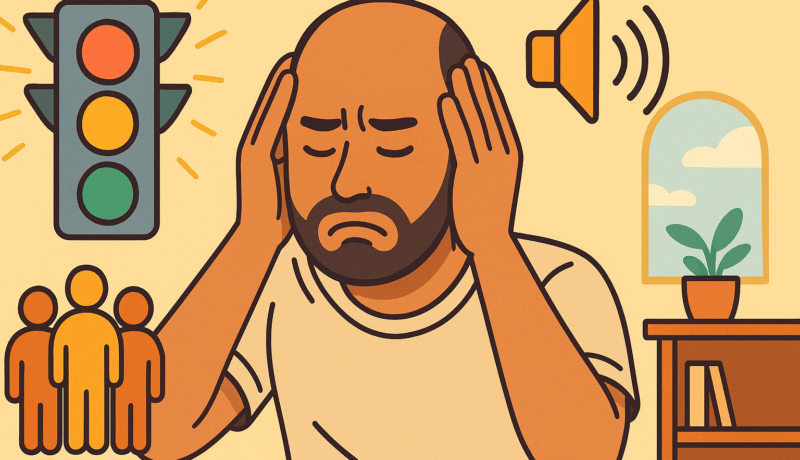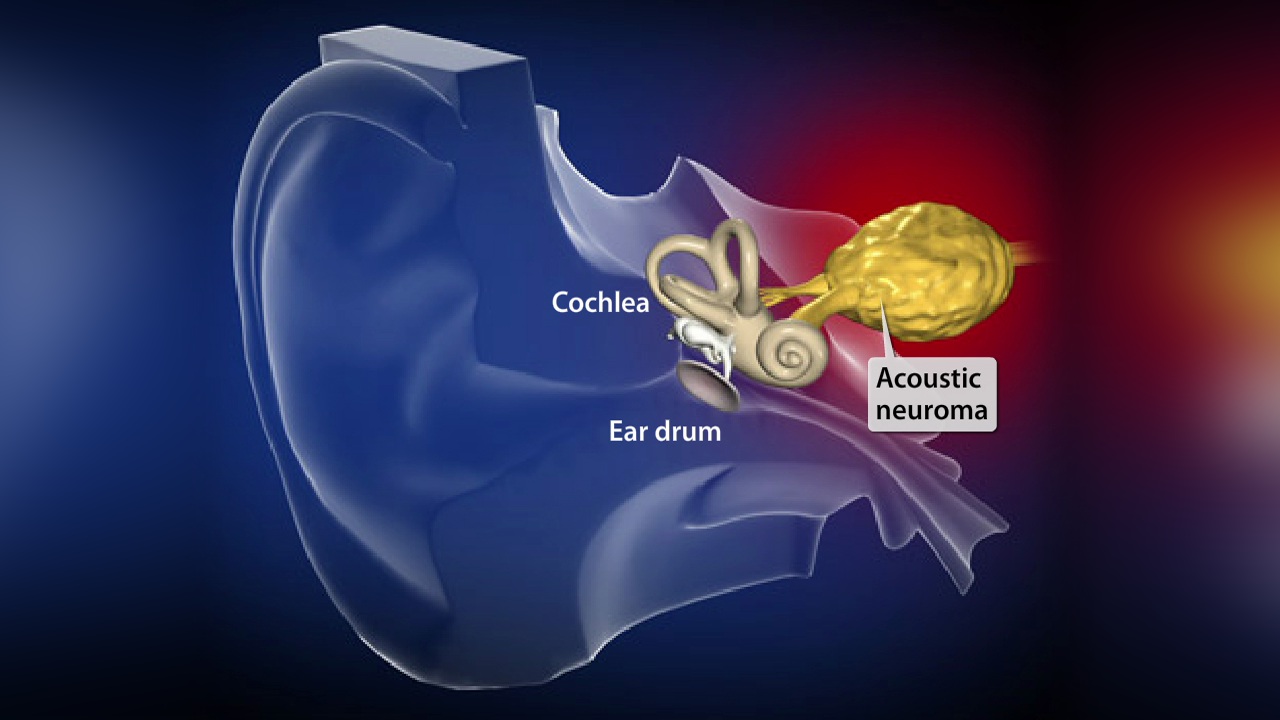
When the World Feels Too Loud: Sensory Overload and Vestibular Disorders
Living with an acoustic neuroma—a benign tumour on the balance and hearing nerve—comes with a unique set of challenges. Hearing loss, persistent tinnitus, and imbalance are common, but one aspect that often gets overlooked is how sensory overload can amplify these symptoms.
Table Of Content
Have you ever found yourself feeling dizzy in a supermarket, disoriented at a busy event, or exhausted after a noisy conversation? That’s not just fatigue—it could be your brain struggling to keep up.
Sensory overload is a real and often invisible stressor for people with vestibular and auditory disorders like acoustic neuroma. Let’s explore how it affects daily life and what you can do to manage it.
What Is Sensory Overload—and Why Does It Matter With Acoustic Neuroma?
Sensory overload occurs when your brain receives more information than it can comfortably process. This might come from visual stimuli (bright lights or flashing screens), auditory input (loud or layered sounds), or spatial environments (crowds and movement).
For those with an acoustic neuroma, the brain is already compensating for changes in hearing and balance. Add overwhelming sensory input, and you may find:
- Increased dizziness or unsteadiness
- Amplified tinnitus or sound sensitivity
- Brain fog or difficulty focusing
- Heightened fatigue or anxiety
Even if your acoustic neuroma is small or under “wait and watch,” these subtle but cumulative effects can impact quality of life.
Common Triggers for Sensory Overload
1. Bright or Flickering Lights
Fluorescent lights, phone screens, and flashing images can overwhelm visual processing—especially when your vestibular system is already out of sync.
- Symptoms: Dizziness, visual discomfort, nausea
- Tip: Wear tinted glasses or a cap indoors. Dim screen brightness and use night mode.
2. Loud Noises or Competing Sounds
With hearing loss on one side, your brain works harder to localize sound and filter noise. Environments with layered or unpredictable noise—cafés, public transport, or even family gatherings—can feel mentally and physically exhausting.
- Symptoms: Heightened tinnitus, fatigue, irritability, “zoning out”
- Tip: Use directional microphones on your hearing aid if you wear one, or try noise-cancelling headphones in public.
3. Busy or Crowded Environments
Walking through a mall or navigating a busy street may challenge your balance system and cause spatial disorientation. This can lead to a “shut down” feeling, where thinking clearly becomes difficult.
- Symptoms: Unsteadiness, brain fog, increased anxiety
- Tip: Shop at quieter times, plan breaks, and avoid rushing through crowded spaces.
Why It’s More Than Just an Inconvenience
The hidden cost of sensory overload is mental and emotional strain. Many with acoustic neuroma experience:
- Social withdrawal due to difficulty hearing in groups
- Frustration or guilt for needing breaks or special accommodations
- Anxiety about appearing “fine” while struggling internally
These aren’t signs of weakness—they’re natural responses to a brain doing the best it can with altered input.
Managing Sensory Overload With an Acoustic Neuroma
You can’t always control your environment, but you can prepare for it. Here are some practical, tried-and-tested strategies:
- Use tools: Sunglasses, hats, hearing aids, or earplugs help reduce incoming stimuli.
- Rest before and after: Give your brain time to recharge.
- Know your thresholds: Don’t push through fatigue or overwhelm; step outside or into quiet areas.
- Communicate your needs: Let family, friends, and colleagues know how they can help.
- Track triggers: Keep a symptom diary to learn what situations affect you the most.
You’re Not Alone
Whether you’re newly diagnosed or have been living with an acoustic neuroma for years, sensory overload is a real part of the journey that deserves attention. You don’t need to suffer in silence. Sharing your story helps raise awareness—not just of the condition, but of the invisible day-to-day challenges it brings.





